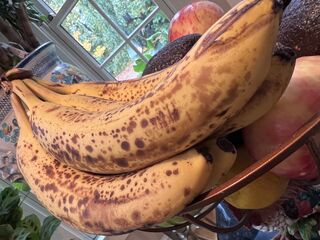Sleep
My Life Hack for Insomnia
A Personal Perspective: How I fall asleep and stay asleep without medication.
Posted October 28, 2022 Reviewed by Lybi Ma
You wake up, and the clock’s blue light is blinking 3:12 a.m. You know that feeling—you’re wide awake with little hope of falling back to sleep. Panic sets in as you remember your alarm is set for 6:30 a.m.
Sometimes I would call on those unreliable white sheep, ever adept at jumping over that white picket fence. Other times I would tense my muscles, limb by limb, and then release, limb by limb, hoping relaxation would do the trick. At other times, I would slowly count up from 1 to 100 and then back down, trusting a friend’s assurance that sleep would arrive before the countdown was complete.
But nothing worked in the long term. I would have success for a night, followed by failure.
The Problem of Sleeplessness
I was not alone. The problem is common. Studies indicate anywhere from 50 percent to 75 percent of adults experience periodic insomnia. Women tend to experience the problem more commonly than men. Insomnia can manifest as either difficulty falling asleep or trouble remaining asleep for more than three nights a week over a period of three months or longer.
While prescription sleep medication is a proven sleep aid, many shy away from these drugs because of side effects or fear that they will become habit-forming. Side effects reportedly range from headaches, lethargy, and daytime drowsiness to the more serious threats of irritability, anxiety, delirium, and even seizures.
Sleep is the holy grail of good health. It is as necessary as food and water for optimal functioning. Lack of sleep doesn’t feel good, and it isn’t good for you. Chronic sleep deprivation increases many health problems, including the risk of Alzheimer’s disease, cancer, diabetes, and heart disease.
Adequate sleep also is vital for a resilient response to stress and trauma. Neuroimaging and neurochemistry studies suggest that a good night's sleep fosters mental and emotional resilience, whereas chronic sleep deprivation promotes negative thinking and emotional vulnerability. In short, a good night’s sleep promotes brain health, enabling you to process information clearly. Sleeping well also reins in strong emotions, making it possible for you to respond thoughtfully when under pressure.
It was serendipity that I discovered a practice to address my nagging insomnia during a period of serious sleep deprivation. Years ago, after driving my son back to school, we had dinner with a lovely couple in his college town who I didn’t know well. Yawning, I apologized to them for not being quick-witted that evening, fearing they would perceive me as being dull. I explained I was experiencing an extended and debilitating bout of insomnia. Tess, my host, told me she had just the solution.

The Power of a Banana
She offered me a banana.
With this offering, she handed me a simple tool.
Bananas are a cocktail of potassium, magnesium, vitamin C, vitamin B6, and fiber. Together, these vitamins and minerals combine to reduce stress, alleviate muscle cramps, and regulate the sleep cycle by naturally regulating serotonin and melatonin.
The potassium in bananas relaxes your muscles and reduces nighttime cramps that can either keep you awake or wake you up in the middle of the night. Potassium also balances the body’s sodium and electrolytes. Potassium naturally regulates blood pressure, balancing sodium's harmful effects on the body. Recent studies show a diet high in potassium, as found in bananas, has the added benefit of promoting heart health.
A banana’s magnesium reduces stress and anxiety, arch enemies of sleep. Magnesium affects the hypothalamus, the part of the brain that controls the adrenal and pituitary glands that are responsible for stress. Magnesium maintains gamma-aminobutyric acid, those neurotransmitters that promote sleep by slowing brain waves and calming the body.
The vitamin B6 found in bananas converts the amino acid tryptophan to serotonin, the neurotransmitter controlling melatonin levels in the body. Melatonin regulates the internal clock and promotes a feeling of being sleepy.
Bananas are a gift that just keeps on giving. They are reported to aid weight loss, reduce swelling of the body, and increase white blood cell production. High in antioxidants, they may even protect against cancer-causing toxins.
On the internet, recipes abound for banana smoothies, banana cake, and other banana-concoctions to serve as sleep aids. But if you are looking for simplicity, a simple raw banana is all you need.
The question I’m most frequently asked is whether the banana should be ripe or green. The good news is that either work. A ripe banana has more pectin, or sugar, enabling swifter digestion and conveying more antioxidants. The green banana may not taste as good, but it will satiate your appetite longer, stimulate metabolism, and its probiotic bacteria will aid colon health. Both have the composition to promote sleep.
Mountains of valid tips are available to all who seek advice on how to sleep better, as I once did. Avoid caffeine late in the day. Reduce exposure to blue light. Set a consistent sleep schedule for yourself. Don’t over nap. Avoid excessive alcohol. Keep your bedroom on the cool side, around 70 degrees.
Yet list after list of good advice often misses what I found to be the best sleep inducer of all. I leave a banana on the nightstand and at a small piece of banana immediately before my head hits the pillow. If your habit is like mine, waking up in the middle of the night, it will be nearby for another small bite that may work as well as any lullaby.




